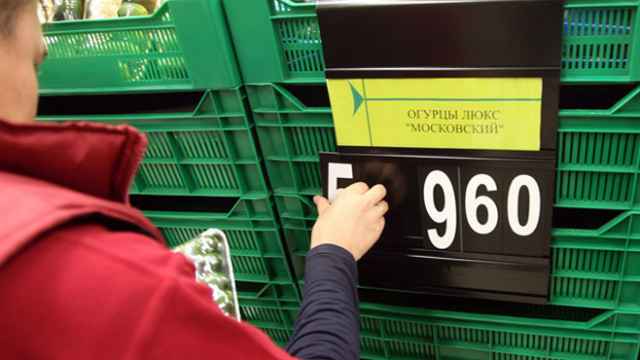Retail prices for coffee and tea in Russia could rise by up to 20 percent next year as the ruble's crumbling value pushes up costs for importers, newspaper Izvestia reported, citing the Russian Association of Tea and Coffee Producers.
Russia's currency has weakened by 40 percent versus the U.S. dollar since January, stricken by Western sanctions on Russia over its role in the Ukraine crisis and a steeply falling oil price.
While Russia does produce some tea in the Krasnodar region, 99.98 percent of raw materials for both tea and coffee sold in the country are imported, Izvestia cited Rustam Chanturia, CEO of the Russian Association of Tea and Coffee Producers, as saying.
Ruble weakness will see wholesale prices for tea and coffee grow by at least 10 percent next year, and retailers will likely pass on the costs to consumers with price hikes of up to 20 percent, Chanturia said.
A falling ruble has hit the retail price of the tea and coffee industry before: The cost of coffee and tea in shops rose by more than 20 percent during the 2008-09 global financial crisis, research firm Nielsen reported.
The ruble lost a third of its value against the U.S. dollar between July 2008 and February 2009, before paring losses to about one-quarter by the end of that year.
Russia has long nurtured a tea drinking culture, with 93.6 percent of Russians drinking tea at least once every three months, according to analytics firm Synovate Comcon.
Coffee consumption has lagged in comparison, but coffee houses still abound in Russia's urban centers.
A Message from The Moscow Times:
Dear readers,
We are facing unprecedented challenges. Russia's Prosecutor General's Office has designated The Moscow Times as an "undesirable" organization, criminalizing our work and putting our staff at risk of prosecution. This follows our earlier unjust labeling as a "foreign agent."
These actions are direct attempts to silence independent journalism in Russia. The authorities claim our work "discredits the decisions of the Russian leadership." We see things differently: we strive to provide accurate, unbiased reporting on Russia.
We, the journalists of The Moscow Times, refuse to be silenced. But to continue our work, we need your help.
Your support, no matter how small, makes a world of difference. If you can, please support us monthly starting from just $2. It's quick to set up, and every contribution makes a significant impact.
By supporting The Moscow Times, you're defending open, independent journalism in the face of repression. Thank you for standing with us.
Remind me later.






